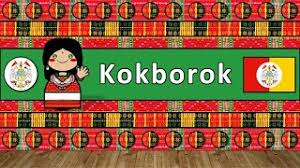Tripura Chief Minister Dr. Manik Saha has responded positively to a delegation led by the state Assembly’s leader of the opposition, Aniesh Debbarma, regarding the demand for the introduction of the Roman script alongside Bengali in question papers prepared by the Central Board of Secondary Education (CBSE). The Chief Minister has assured the delegation that a committee will be formed by the state government to consider this demand. The delegation, representing a significant number of students studying in English Medium Schools under CBSE, argues that the provision of question papers in the Roman script will cater to their needs and enable them to perform better in examinations. At present, the state government recognizes Bengali as a script for Kokborok, and the CBSE prepares question papers in Bengali script.
A delegation consisting of leaders, including the leader of the opposition in the state Assembly, Aniesh Debbarma, met with Tripura Chief Minister Dr. Manik Saha to discuss the demand for the inclusion of the Roman script in CBSE question papers. The delegation highlighted the increasing number of students studying in English Medium Schools under the CBSE curriculum and emphasized the need for question papers that cater to their educational background. Recognizing the importance of addressing the concerns of these students, Chief Minister Saha assured the delegation that a committee would be formed to evaluate and consider their demand.
The delegation, addressing a press conference after the meeting, stressed that a significant portion of students in Tripura are enrolled in English Medium Schools following the CBSE curriculum. These students primarily rely on English as their medium of instruction, and it is crucial that question papers align with their educational environment. Presently, the CBSE prepares question papers in Bengali script, which can pose difficulties for students accustomed to the Roman script. Introducing question papers in the Roman script would facilitate a smoother examination process and allow students to demonstrate their knowledge without being hindered by language barriers.
To address the demand put forth by the delegation, the Tripura state government will establish a committee dedicated to evaluating the feasibility and implications of including the Roman script alongside Bengali in CBSE question papers. The committee’s mandate will be to assess the technical aspects of implementing this change, such as the resources required for translation, logistics, and the impact on students’ performance. It will also consider any potential challenges and propose appropriate solutions to ensure a seamless transition. The committee’s recommendations will provide valuable insights for the state government to make an informed decision regarding the inclusion of the Roman script in CBSE question papers.
Introducing question papers in the Roman script for CBSE examinations in Tripura would have several benefits for students studying in English Medium Schools. The Roman script aligns with the medium of instruction in these schools and is the preferred script for students familiar with English. By offering question papers in the Roman script, the CBSE can create a level playing field for all students, regardless of their linguistic background. This provision would enhance students’ understanding and comprehension of the examination content, allowing them to express their knowledge more effectively.
While discussing the demand for the Roman script, it is essential to acknowledge the significance of the state government’s recognition of Bengali as a script for Kokborok, the indigenous language of Tripura. This recognition highlights the government’s commitment to linguistic inclusivity and the preservation of indigenous cultures. By considering the demand for the Roman script, the state government can further demonstrate its dedication to providing equal opportunities for students with different linguistic backgrounds, without compromising the recognition of local languages.
The introduction of the Roman script in CBSE question papers would have a positive impact on the education system in Tripura. It would help bridge the gap between the medium of instruction and examination format, enabling students to perform to their full potential. Additionally, this step would promote language inclusivity and accommodate students from diverse linguistic backgrounds.
The formation of the committee by the Tripura state government showcases its responsiveness to the demands of students and the education sector. The committee’s evaluation and subsequent recommendations will play a crucial role in shaping future developments related to question paper formats in the state. This proactive approach reflects the government’s commitment to improving the educational landscape and ensuring that students have a fair and conducive environment to excel in their examinations.
The Tripura state government’s decision to form a committee to consider the demand for the inclusion of the Roman script in CBSE question papers demonstrates its commitment to addressing the needs of students studying in English Medium Schools. By recognizing the importance of aligning question papers with the linguistic background of students, the government aims to create an inclusive and equitable educational environment. This step not only enhances students’ educational experience but also reflects the government’s proactive approach in adapting to the evolving requirements of the education sector.


